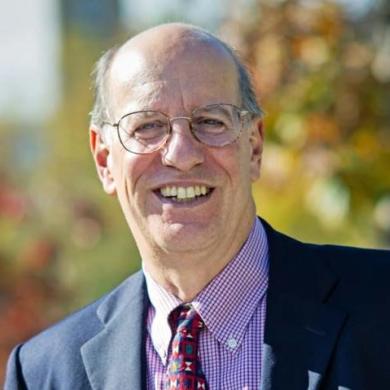
The Work Goes On
Harry Katz on his push for a more cooperative environment in labor-management relationships
Harry Katz, the Jack Sheinkman Professor of Collective Bargaining at Cornell University’s School of Industrial and Labor Relations, discusses his academic background, his studies of collective bargaining, his work with the United Auto Workers (UAW), and his on-going thoughts on how to make labor negotiations more inclusive and cooperative.
In this episode, Katz and Ashenfelter discuss:
- Katz’s youth in the Bay Area of California and his father’s employment with the Paul Masson wine producer.
- Katz’s undergraduate and graduate studies at the University of California, Berkeley, and how his interest in economics overrode his pre-med studies. “I went to Berkeley as an undergraduate and initially it was pre-med, but by accident [I] took an economics course and discovered I like to daydream and think about economics more than I thought about biology or physiology.”
- How a public employee’s strike in San Francisco provided the basis for Katz’s dissertation. “I was looking around for a topic and a strike started in San Francisco by its public employees, and I ended up writing a thesis which sort of traced the post-World War II history of labor relations in the city of San Francisco, how they got to that strike.”
- Katz’s teaching experience at MIT and his work with labor specialist Henry Farber on final-offer arbitration, which is often used when two parties are unable to resolve a dispute through mediation.
- Katz’s service on the Public Review Board of the United Auto Workers, which was created “...to hear appeals by workers or local unions challenging any decision of the International Executive Board of the UAW.”
- Katz’s concerns about a lack of diversity among labor arbitrators, especially those of the National Academy of Arbitrators (NAA). “Many of the employees are very diverse given the changes underway in the U.S. workforce ... they've got to be more inclusive. The arbitrators have to look more like the workforce.”
- Katz’s opposition to mandatory employment arbitration, which was established by an act of Congress in the 1920s. “I'm a believer in the value of employment arbitration. I just think it should be voluntary. And I also would prefer that there be due process protections…”
Harry Katz earned his Ph.D. from the University of California, Berkeley, in 1977. He is the Jack Sheinkman Professor of Collective Bargaining at Cornell University’s School of Industrial and Labor Relations and the Director of the Scheinman Institute on Conflict Resolution. He is a current Scholar Fellow of the Labor and Employment Relations Association and since 2006 has been a member of the United Auto Workers (UAW) Public Review Board. "The Work Goes On"—a podcast produced by Princeton's Industrial Relations Section (IR Section)—is an oral history of industrial relations and labor economics hosted by Princeton's Orley Ashenfelter.
-
Katz, Harry C., and Owen Darbishire. Converging Divergences: Worldwide Changes In Employment Systems. Ithaca, NY: Cornell University Press, 2018.
-
Turner, Lowell., Harry C. Katz, and Richard W Hurd. Rekindling the Movement: Labor's Quest for Relevance In the Twenty-First Century. Ithaca: ILR Press, 2001.
-
Katz, Harry C. The Impact of Public Employee Unions on City Budgeting and Employee Remuneration : a Case Study of San Francisco. New York: Garland Pub, 1984.
